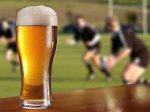 Athletes, may choose to become Vegetarian for a number of reasons e.g.religious beliefs; animal rights; economic; political or aesthetic. Most believe it to be a better health choice and it can be.
Athletes, may choose to become Vegetarian for a number of reasons e.g.religious beliefs; animal rights; economic; political or aesthetic. Most believe it to be a better health choice and it can be.
Health benefits
Vegetarians, tend to consume lower levels of saturated fat when they avoid red meat and they usually have lower cholesterols and body weights than omnivores (red meat eaters). Generally speaking vegetarians also adopt a healthy lifestyle. They tend to be non-smokers with low alcohol intakes who also exercise regularly.
The incidence of coronary heart disease, Type 2 Diabetes, metabolic syndrome, renal disease and some forms of cancer is also reportedly lower in vegetarians.
Types of vegetarians diets
The safety of vegetarian diets does depend on the degree of food group restriction see diagram below:
| Type of vegetarian | Preferred food groups |
| Vegetarians | eat fruit, vegetables, wholegrains, nuts and seeds |
| Ovo-vegetarians | also eat eggs |
| Lacto-vegetarians | vegetarians also eat milk and milk products |
| Pescetarians | Vegetarians who will eat fish |
| Pollo-pescetarians | vegetarians who will eat fish and poultry |
| Part-time vegetarians | usually follow a vegetarian lifestyle but eat meat socially |
| Vegans | refuse all animal products not only food but also personal |
| products such as cosmetics, leather shoes and bags etc |
It is possible to have a healthy diet as an ovo-lacto vegetarian because most of the main nutrients are available. Care must be taken to ensure sufficient supplies of energy, protein, fat, vitamins and minerals. Iron and zinc supplementation may be necessary, particularly in women athletes who suffer from heavy menstrual losses.
Those who choose to be totally vegan are more at risk from deficiency of certain B group vitamins such as riboflavin, niacin and Vitamin B12, as well as Vitamin D, iron, zinc and some essential fatty acids. A multi-vitamin and mineral supplement is recommended, particularly if touring cities that are heavily polluted or where the access to fresh fruit and vegetables may be limited.
Special considerations for vegetarian athletes
Despite the apparently healthier lifestyle vegetarian athletes (like anybody) can still become overweight, hungry, bloated and suffering from multiple nutrient deficiencies.
Energy can be low
A vegetarian diet can be very bulky and full of healthy low GI foods and dietary fibre but not necessarily energy-dense. Better performance can be achieved when athletes learn to “count” their carbohydrate portions and learn how to regulate their carbohydrate levels up and down according to their energy needs for baseline, training and competition. This may necessitate the inclusion of higher energy snacks and sports drinks when peak performance is required.
One of the problems with this bulky diet is that some athletes may experience “runners diarrhoea” more often than non vegetarians. Athletes who consume large quantities of fruit, in order to maintain their energy levels, may also experience more problems of bloating and wind (gas) due to excess fructose in their diets. “Irritable bowel” like symptoms can develop, particularly around stressful events and may require specialized dietary help. For more information read Lea’s article on The brain-gut axis.
Protein can be insufficient
The role of protein in the diet in aiding satiety (feeling of fullness) is very important to the sustainability of energy levels. Adding cheese, egg or yoghurt can delay digestion for up to 3-4 hours sustaining appetite and blood sugar levels.
However athletes who rely totally on plant sources for protein (such as soy, lupin beans, hempseed, chia seeds, amaranth, buckwheat and quinoa) may experience hunger and a greater need to snack between means. As these protein rich foods are also a source of carbohydrate (and in order to obtain sufficient protein to sustain appetite more may need to be eaten) weight can be gained.
Special care should be taken with vegetarian athletes also restrict protein because of food allergies or intolerances. For instance vegetarians who also need to restrict gluten as a lack of bread and wheat based cereals can seriously compromise not only protein but also energy intakes.
Fat can be high
Fat is essential to brain and nerve health. Most athletes are very keen to limit their fat intakes and this is often why they become a vegetarian in the first place.
However saturated fat can creep up in a vegetarian diet, particularly if the meat is replaced with high-fat foods, e.g. cheese, carrot cake with cream cheese icing; slices; chocolate; quiches; pastry. Oil, sour cream or coconut milk added to recipes can rapidly elevate blood cholesterol levels and body weight.
The best sources of the essential fatty acids Omega 3 polyunsaturated fats (EPA and DHA) are fish and fish oil. However for non- pescetarians plant sources can provide these essential fats in the form of soy, walnuts, canola oil, kiwifruit, chia seeds and flaxseeds. Olives and olive oil are also a good source of essential fats although these oils are still a source of calories so need to be monitored if weight is a concern.
Plant foods are a source of alpha linolenic acid that the body can convert into EPA and DHA however this system is quite slow and inefficient. While most vegans and vegetarians do have low levels of these essential fatty acids it is possible to check intakes by talking with a Dietitian. Supplements can be taken and algae such as spriulina are also a source of these nutrients.
Iron deficiency
Iron is important for carrying oxygen in the blood and at low levels can lead to fatigue and failing performance particularly in menstruating female athletes.
While there are non-haem (non-meat) sources of iron such as eggs, fortified breads and cereals, iron absorption is affected by other nutrients in the diet. Vitamin C found in raw fruit and vegetables can enhance iron absorption. Where as foods high in oxalate (silverbeet, spinach and rhubarb) or phytate (found in whole grains) can inhibit iron uptake.
Zinc depends on iron
Zinc is important for height growth and also cellular functions. Generally, if you look after iron intake, then zinc and trace element intake will be adequate. Zinc absorption is inhibited by an excess of dietary fibre, placing vegetarians at an increased risk of deficiency. Eggs and refined cereals may be the best source of this nutrient.
Low calcium can compromise bone health
Calcium is important for bone and muscle health and development. It is also important for weight control and diabetes prevention. Vegans can obtain sufficient calcium if they drink soy milk or eat soy products such as tofu or soy yoghurt. Calcium is also present in oranges, broccoli and almonds however to reach levels of sufficiency it would be impractical to rely exclusively on these foods. Athletes, particularly post-menopausal women or those with very low body weight are at risk of bone degeneration and should see a Dietitian for assessment.
Vitamin B12 often low
This vitamin is important to athletes for nerve health and blood oxygenation. Ovo-lacto vegetarian can easily get enough vitamin B12 if they consume sufficient milk, cheese and eggs into their diet. ‘Sufficient’ means the equivalent of 600mls of milk per day. Vegans however can obtain sufficient vitamin B12 if they drink soy milk, which has been fortified with B12 (e.g. So Good®).
Niacin, riboflavin and thiamine usually fine
These B group vitamins help athletes nerve and energy systems and are best found in red meat alternative sources for vegetarians would be yeast extracts such as Marmite® and also eggs, nuts and whole grain cereals which are usually plentiful in most vegetarian diets.
Vegetarians on tour
Most restaurants now cater for vegetarians, offering pasta, rice, stir-fried vegetable, potato and egg dishes. There are vegetarian takeaway options such as falafel or hummus filled souvlaki, pizza, baked potato and Chinese meals based on vegetables, noodles/rice and egg.
For quick meals on the run, Sanitarium® New Zealand also has a wide range of canned products based on soy bean. There is also an increasing range of fresh and frozen vegetarian pasta meals such as lasagne and ravioli containing ingredients such as ricotta cheese with spinach, roast vegetables or pumpkin .
Eating more fruit and vegetables can greatly improve our health. However when these foods are also being relied upon as a source of energy and protein care should be taken. Do contact us if you would like an appraisal of your vegetarian diet, particularly if you are a young athlete facing issues of growth and development.























































Leave a Reply